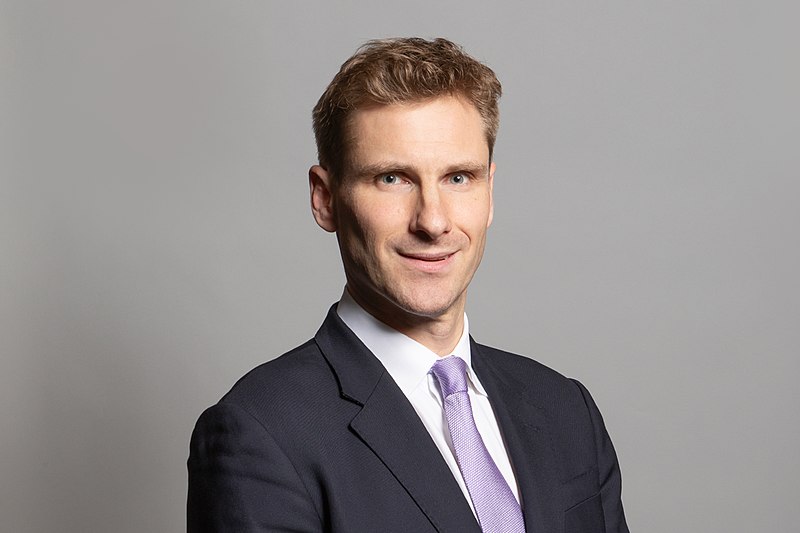In response to the escalating concern over transphobic hate crimes in the UK, Stephen Morgan, Labour MP for Portsmouth South, raised an important question in Parliament about the measures being taken to address this issue.
Chris Philp, Conservative MP for Croydon South and Minister of State (Home Office), outlined the government’s stance, which, while proclaiming a commitment to combating hate crimes, then went on to downplay them.
Philp’s statement acknowledges the increase in reported transphobic hate crimes but suggests that this may be partly attributed to improved police recording and victim willingness to report such crimes, rather than a genuine rise in incidents.
“Whilst part of the increase in transgender hate crime may be due to a genuine rise, the biggest driver is likely to be general improvements in police recording,” Philp’s wrote in his response.
“The police are also better at identifying whether a crime is a hate crime, along with increased victim willingness to come forward. This is positive and reflects the hard work that has gone in to ensuring that police can target their resources, understand the scale of the challenge and ensure that victims get the support they need.”
His framing undermines the severity and reality of the increasing hostility faced by the transgender community, an issue that requires urgent and sincere attention as the government gears up to make attacking trans people a core cog of its election strategy.
An ONS report in October, 2023, found that “England and Wales continues to become a less safe place for lesbian, gay, bi and trans people” with an 11% increase in hate crimes against trans people in the last year and 186% over the last five years. One-hundred-and-eighty-six.
Furthermore, his rambling about the government’s emphasis on general crime reduction measures, such as increasing police numbers, does not directly address the specific needs and vulnerabilities of the transgender community.
The allocation of resources towards general policing, without a clear, targeted strategy to protect trans people, raises questions about the effectiveness of these measures in providing real safety and support to those at risk. Not that you will find many trans people who want more police around, anyway.
Philp’s then detailed the government’s funding for anti-bullying initiatives in schools, including tackling hate-related and LGBTQ+ bullying, set to be a paltry £3m spread over three years.
Yet, within the wider educational and social environment for trans youth in the UK, it is the UK Government, namely Kemi Badenoch as the Equalities Minister, who is driving the bullying of trans kids in schools, eagerly cheers on by the right-wing press and whatever The Guardian is these days.
Policies and rhetoric that is outright hostile towards trans students contradicts any stated efforts to create a safe and inclusive educational setting.
Chris Philp’s response in full
Question from Stephen Morgan, Labour (Portsmouth South): To ask the Secretary of State for the Home Department, what steps he is taking with Cabinet colleagues to tackle the causes of changes in the level of transphobic hate crimes.
The quetsion was also asked by Dan Carden, Labour (Liverpool, Walton).
Answer from Chris Philp, Conservative (Croydon South) (Minister of State (Home Office)):
6 December 2023
This Government is clear that all forms of hate crime are completely unacceptable, and we have a robust legislative framework to respond to hate crimes which target transgender identity, race, religion, sexual orientation, and disability. We expect the police fully to investigate these abhorrent offences and make sure those who commit them feel the full force of the law.
Whilst part of the increase in transgender hate crime may be due to a genuine rise, the biggest driver is likely to be general improvements in police recording. The police are also better at identifying whether a crime is a hate crime, along with increased victim willingness to come forward. This is positive and reflects the hard work that has gone in to ensuring that police can target their resources, understand the scale of the challenge and ensure that victims get the support they need.
Our absolute priority is to get more police onto our streets, cut crime, protect the public and bring more criminals to justice. We are supporting the police by providing them with the resources they need. This has included the recruitment of 20,000 additional police officers by March 2023.
The Government continues to fund True Vision, an online hate crime reporting portal, designed so that victims of all forms of hate crime do not have to visit a police station to report. We also continue to fund the National Online Hate Crime Hub, a central capability designed to support individual local police forces in dealing with online hate crime. The Hub provides expert advice to police forces to support them in investigating these despicable offences.
The Government is providing over £3m of funding, between 10 August 2021 and 31 March 2024, to five anti-bullying organisations to support schools to tackle bullying. This includes projects targeting bullying of particular groups, such as those who are victims of hate-related bullying and homophobic, biphobic and transphobic based bullying. The providers are the Anti-Bullying Alliance, Diversity Role Models, EqualiTeach, Anne Frank Trust and the Diana Award.











